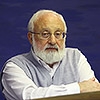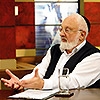 Like A Bundle of Reeds, Why Unity and Mutual Guarantee Are Today’s Call of the Hour, Michael Laitman, Ph.D.
Like A Bundle of Reeds, Why Unity and Mutual Guarantee Are Today’s Call of the Hour, Michael Laitman, Ph.D.
Chapter 6: Expendable
Contemporary Anti-Semitism
What They Need and What We Get
On the face of it, it seems as though the world is ungrateful for the contributions made by Jews to the benefit of humanity in science, education, economy, sociology, psychology, and virtually every realm of life. However, that ostensible ingratitude should serve as an indication that what we are giving is not necessarily what they need from us.
In fact, people do acknowledge the uniqueness of the Jewish people, but it is we who misuse that uniqueness by giving what we want to give, instead of what they want to receive.
To better understand what the world needs from us, we should look at some of the more damning and poignant documents written about Jews. A great example of such a document is Henry Ford’s (founder of the Ford Motor Company) infamous book, The International Jew—The World’s Foremost Problem. While still making gross generalizations, the book often establishes points that are well worth considering. For that, however, we must put aside our affront, and truly look into Ford’s arguments (emphases in italics are the editor’s): “Every Jew ought to know also that in every Christian church where the ancient prophecies are received and studied, there is a great revival of interest in the future of the Ancient People. It is not forgotten that certain promises were made to them regarding their position in the world, and it is held that these prophecies will be fulfilled. The future of the Jew … is intimately bound up with the future of this planet, and the Christian church in large part … sees a Restoration of the Chosen People yet to come. If the mass of the Jews knew how understandingly and sympathetically all the prophecies concerning them are being studied in the Church, and the faith that exists that these prophecies will find fulfillment and that they will result in great Jewish service to society at large, they would probably regard the Church with another mind.”[i]
Earlier in the book, Ford writes, “The whole prophetic purpose with reference to Israel seems to have been the moral enlightenment of the world through its agency.”[ii] And in another place, he adds, “Society has a large claim against [the Jew] that he … begin to fulfill [what], in a sense, his exclusiveness has never yet enabled him to fulfill—the ancient prophecy that through him all the nations of the earth should be blessed.”[iii]
John Adams, second President of the United States, also commented on what he believed the Jews have given to the world. In his words, “The Hebrews have done more to civilize men than any other nation. If I were an atheist, and believed in blind eternal fate, I should still believe that fate had ordained the Jews to be the most essential instrument for civilizing the nations. If I were an atheist of the other sect, who believe, or pretend to believe that all is ordered by chance, I should believe that chance had ordered the Jews to preserve and propagate to all mankind the doctrine of a supreme, intelligent, wise, almighty sovereign of the universe, which I believe to be the great essential principle of all morality, and consequently of all civilization.”[iv]
Samuel Langhorne Clemens, better known by his pen name, Mark Twain, does acknowledge the Jewish distinction in all realms of human engagement, but he, too, ends up pondering the source of that preeminence: “…If statistics are right, the Jews constitute but one percent of the human race. It suggests a nebulous dim puff of stardust lost in the blaze of the Milky Way. Properly, the Jew ought hardly to be heard of, but he is heard of, has always been heard of. He is as prominent on the planet as any other people, and his commercial importance is extravagantly out of proportion to the smallness of his bulk. His contributions to the world’s list of great names in literature, science, art, music, finance, medicine, and abstruse learning are also away out of proportion to the weakness of his numbers. He has made a marvelous fight in this world, in all the ages; and had done it with his hands tied behind him. He could be vain of himself, and be excused for it.
“The Egyptian, the Babylonian, and the Persian rose, filled the planet with sound and splendor, then faded to dream-stuff and passed away; the Greek and the Roman followed, and made a vast noise, and they are gone. Other people have sprung up and held their torch high for a time, but it burned out, and they sit in twilight now, or have vanished. The Jew saw them all, beat them all, and is now what he always was, exhibiting no decadence, no infirmities of age, no weakening of his parts, no slowing of his energies, no dulling of his alert and aggressive mind. All things are mortal but the Jew; all other forces pass, but he remains. What is the secret of his immortality?”[v]
And finally, there are those who not only recognize that Jews are special in the spiritual sense, more than in the corporeal one, but even detail the essence of that spirituality: unity. Such was the case of Prime Minister of the United Kingdom during World War II, Sir Winston Churchill. In Churchill and the Jews, author Martin Gilbert quotes Churchill: “The Jews were a lucky community because they had that corporate spirit, the spirit of their race and faith. [Churchill] would not … ask them to use that spirit in any narrow or clannish sense, to shut themselves off from others … far from their mood and intention, far from the counsels that were given them by those most entitled to advise. That personal and special power which they possessed would enable them to bring vitality into their institutions, which nothing else would ever give. [Churchill sincerely believed that] A Jew cannot be a good Englishman unless he is a good Jew.”[vi]
We can therefore see that what the nations want from the Jews is not excellence in science, finance, or any of the other realms mentioned in the quotes above. What the world needs from us is spirituality, namely, the ability to connect to the Creator. This is the one thing that we had possessed, and which no other nation has, had, can, or is intended to possess unless we rekindle it within us and pass it on as a light for the nations. As long as we refrain from carrying out that mission, the nations will by and large consider us expendable, if not downright injurious, and certainly, as Ford stated, “The world’s foremost problem.”
[i] Henry Ford, The International Jew—The World’s Foremost Problem (The Noontide Press: Books On-Line), 40.
[ii] Henry Ford, The International Jew—The World’s Foremost Problem (The Noontide Press: Books On-Line), 8.
[iii] Henry Ford, The International Jew—The World’s Foremost Problem (The Noontide Press: Books On-Line), 28.
[iv] John Adams, in a letter to F. A. Vanderkemp (16 February 1809), as quoted in The Roots of American Order (1974) by Russel Kirk.
[v] Mark Twain, The Complete Essays of Mark Twain, “Concerning The Jews” (published in Harper’s Magazine, 1899), Doubleday, [1963], pg. 249.
[vi] Martin Gilbert, Churchill and the Jews (UK, Simon & Schuster, 2007), 16.
Filed under: Anti-Semitism, Books - No Comments →
 If the anointed Cohen [priest] sins, bringing guilt to the people, then he shall bring for his sin which he has committed, an unblemished young bull as a sin offering to the Lord.
If the anointed Cohen [priest] sins, bringing guilt to the people, then he shall bring for his sin which he has committed, an unblemished young bull as a sin offering to the Lord.








